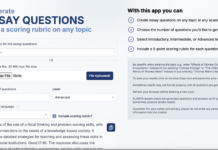Moore, J. (2010) State law requires digital college textbooks by 2020 VCStar.com, January 11
The article states:
Companies that sell textbooks to California universities must offer electronic versions by 2020, under a new state law.
Note that the article mixes up electronic publishing with e-books. The article assumes that a specialized reader of some kind, such as the Kindle, will be necessary, but without having detailed information on the state law, I suspect that this is not correct. By 2020, most electronic publishing is likely to be open standard, in the sense that it can be downloaded on a variety of devices, including mobile phones and/or laptops or whatever devices (brainplants?) are available by 2020.









 Dr. Tony Bates is the author of eleven books in the field of online learning and distance education. He has provided consulting services specializing in training in the planning and management of online learning and distance education, working with over 40 organizations in 25 countries. Tony is a Research Associate with Contact North | Contact Nord, Ontario’s Distance Education & Training Network.
Dr. Tony Bates is the author of eleven books in the field of online learning and distance education. He has provided consulting services specializing in training in the planning and management of online learning and distance education, working with over 40 organizations in 25 countries. Tony is a Research Associate with Contact North | Contact Nord, Ontario’s Distance Education & Training Network.


Hi, Tony,
As you say, a lot will happen in the next 10 years! But apart from on-line publishing and e-books, perhaps there will be a third approach – that of an International Digital Resource Bank?
See: http://www.nen.gov.uk/news/25/the-national-digital-resource-bank.html
Here in the UK we have a very exciting venture called the National Digital Resource Bank where local authorities sign up to the sharing of digital resources for use and re-purposing under Creative Commons. No more of this protectionist IP malarkie. I put something into the pool FOC on the hope/trust that I will find something developed by others that I can use. This has to be the way forward if we are ever to be able to add topicality and local/personal interest into resources appropriate to our own classes’ needs.
I love the idea of a creative commons accessible repository, but it needs to go beyond text-based communication. I coordinate a community-based water quality monitoring project and we are building a web-based publicly accessible database at huge cost and with seemingly insurmountable technological barriers. We would love to contribute our data to an elegant commons database!